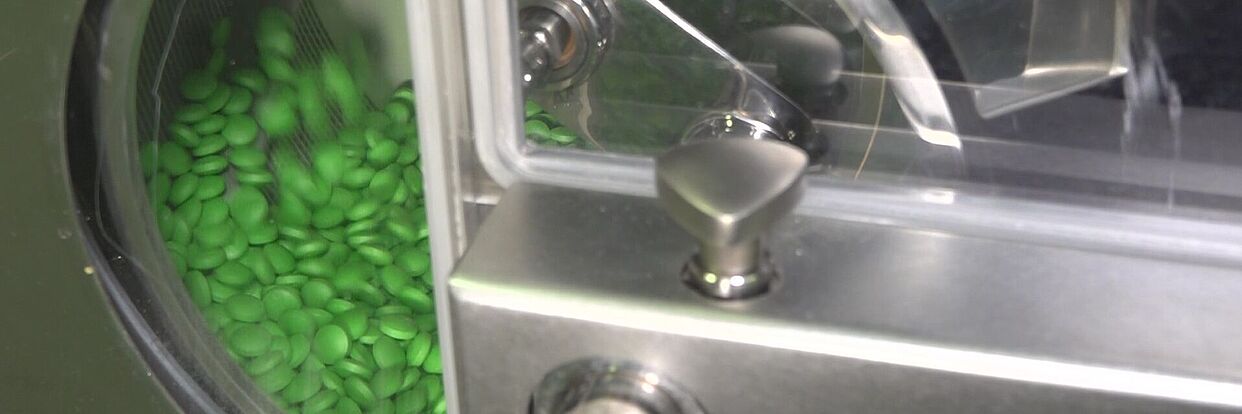
At the interdisciplinary Centre for Pharmaceutical Engineering (PVZ), iPAT addresses the challenges of product and process design in pharmaceutical and bioparticle technology. Our research covers the production and purification of biologics-based active pharmaceutical ingredients, as well as the development of innovative dosage forms and processes.
Formulation technology is a central focus, with the development of manageable dosage forms through precise manufacturing processes such as nanomilling and tableting. Gaining a fundamental understanding of the relationships between material properties, manufacturing processes, produced structures and end product properties is important. This enables us to improve the manufacturability, efficacy and bioavailability of drugs specifically.
We are also working on producing patient-specific dosage forms using 3D printing, for example. Additionally, we are researching and developing methods to identify formulations with minimal quantities of active ingredients, independent of individualisation. Our advanced analytical methods, including Raman microscopy, atomic force microscopy (AFM) and scanning electron microscopy (SEM)-focused ion beam (FIB), support knowledge generation in these areas.
Another area of focus is understanding biological particles. We are researching the production and purification of biosynthetic active ingredients, their mechanical properties, and how they can be formulated into various products. This includes processing sensitive structures, such as RNA and living probiotics, into suitable pharmaceutical, food, and other forms of products.
Our interdisciplinary team, comprising employees with backgrounds in process engineering, biotechnology, pharmaceuticals and pharmaceutical process engineering, promotes the development of personalised, cost-efficient, and effective dosage forms.
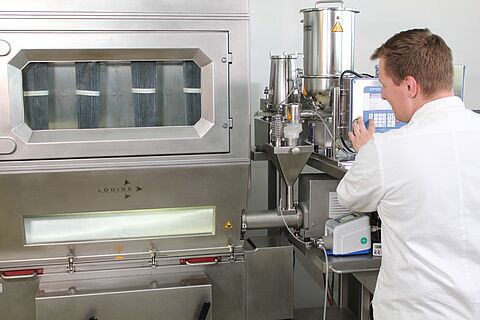
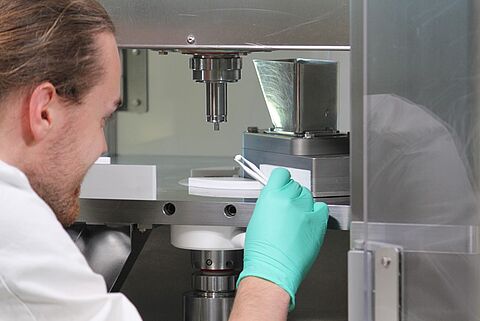
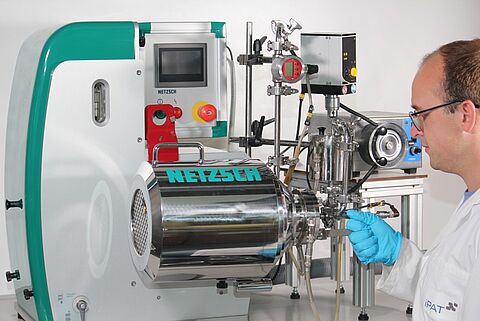
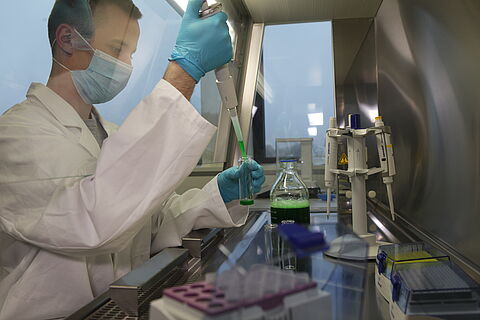
Fig.: Microsystem for emulsification (left), granulate with active substance nanoparticles (center left), mechanical testing of a tablet (center right), atomic force microscopic images of E. coli (right).